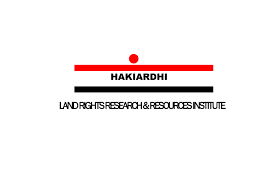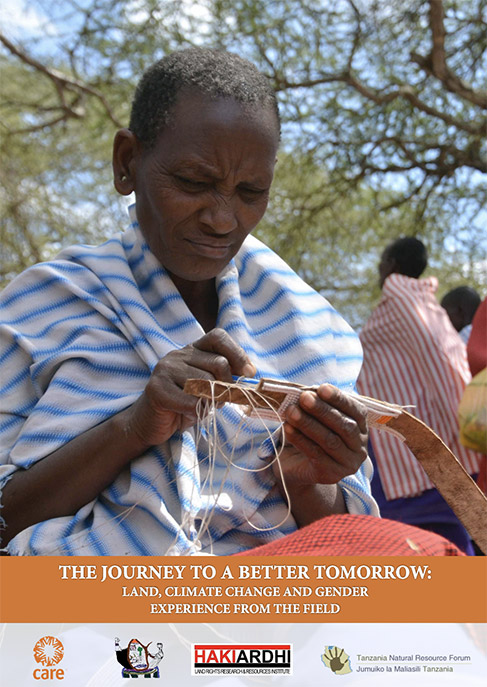Focal point
Location
The Land Rights Research & Resources Institute was founded in 1994 and registered as a non-governmental not-for profit company limited by guarantee under the Companies Ordinance, Chapter 212 of the laws of Tanzania.
The Institute was established out of the need to generate and sustain a public debate and participation, particularly where it matters in villages on issues of land tenure.
It is the institute’s belief that such debate will be better informed if. There is a recognition of indigenous systems of land tenure knowledge and experiences, a will and capacity to research into these and thus generate more systematic knowledge of the same; and an institutional arrangement independent of the state system to generalize local knowledge and experiences horizontally between and among village committees thereby producing a corpus of a truly national system of knowledge on land relations.
VISION
Land Rights Research and Resources Institute envisages a socially just and equitable land tenure system in which all groups in the society and especially the rural based small producers are guaranteed security of tenure, access and ownership to land and other means of their livelihood.
MISSION
HAKIARDHI's mission is to promote and ensure realization of the rights to land of about eighty percents of the rural based communities who are mainly small land holders and producers.
Members:
Resources
Displaying 1 - 5 of 85The Journey to a Better Tomorrow: Land, Climate Change and Gender Experience From the Field
Ardhi Yetu Programme (AYP Plus) is a national land rights advocacy programme that consolidates on-the-ground interventions, while integrating resilience and adaptation. AYP plus utilizes and builds upon the CSO capacity, national forums and joint advocacy platforms developed during the first phase of AYP, to support the overall objective that; active communities and civil society advocate for an inclusive and transparent land sector, strengthening the land tenure security and resilience of small-scale farming and pastoral communities particularly women.
Land Rights Monitors and the Struggle for Land Rights in Agricultural Investment Areas
To ensure that there is sustainability at the community level in its land rights and governance training programme, Land Rights Research and Resources Institute (HAKIARDHI), a Tanzanian national level organization that spearheads land rights of small-scale producers, uses land rights monitors (LRMs) in its program areas. In each of the selected villages of the program districts, two LRMs (a man and a woman) who have received land rights training from HAKIARDHI are democratically elected by villagers.
Land Rights Monitors and the Struggle for Land Rights in Agricultural Investment Areas
To ensure that there is sustainability at the community level in its land rights and governance training programme, Land Rights Research and Resources Institute (HAKIARDHI), a Tanzanian national level organization that spearheads land rights of small-scale producers, uses land rights monitors (LRMs) in its program areas. In each of the selected villages of the program districts, two LRMs (a man and a woman) who have received land rights training from HAKIARDHI are democratically elected by villagers.
Land Rights Monitors and the Struggle for Land Rights in Agricultural Investment Areas
To ensure that there is sustainability at the community level in its land rights and governance training programme, Land Rights Research and Resources Institute (HAKIARDHI), a Tanzanian national level organization that spearheads land rights of small-scale producers, uses land rights monitors (LRMs) in its program areas. In each of the selected villages of the program districts, two LRMs (a man and a woman) who have received land rights training from HAKIARDHI are democratically elected by villagers.
Land Rights Monitors and the Struggle for Land Rights in Agricultural Investment Areas
To ensure that there is sustainability at the community level in its land rights and governance training programme, Land Rights Research and Resources Institute (HAKIARDHI), a Tanzanian national level organization that spearheads land rights of small-scale producers, uses land rights monitors (LRMs) in its program areas. In each of the selected villages of the program districts, two LRMs (a man and a woman) who have received land rights training from HAKIARDHI are democratically elected by villagers.



